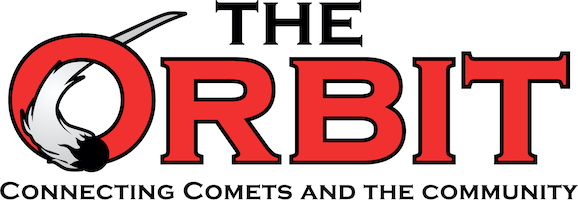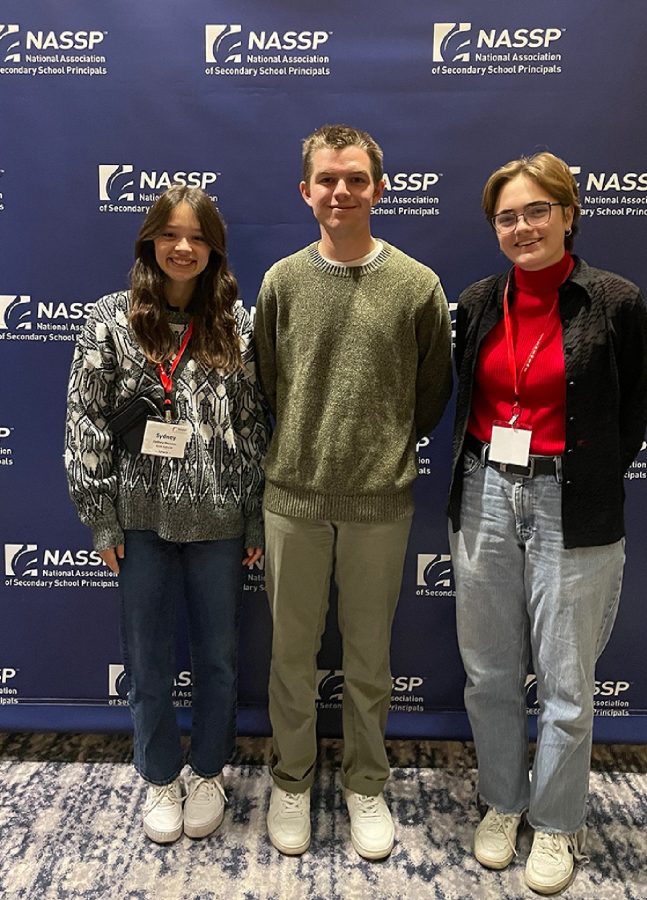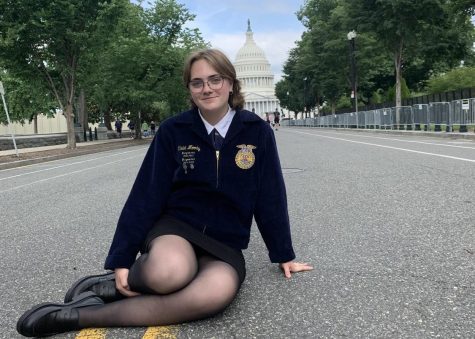My Perspective
Learning about Student Wellness in Washington D.C.
Owen, Houston and I were able to learn a lot more about the struggles that inner-city schools face at the summit.
November 17, 2022
If you would have asked me a week ago how the overall mental wellness of the North Polk Student Body was, I would have responded with a shrug: it has never really been something that I have ever thought about. To be quite honest, I was mostly looking forward to my trip to D.C because I wanted to see all the sights that our Capital provides.
Kalven Owen, Sydney Houston, Susan Krantman, Jacob Wolfe and I departed from the Des Moines Airport on Thursday, Nov. 10, to attend the first-ever Illuminate Student Summit on Wellness, sponsored by the parent organization of the student council and National Honor Society, The National Association of Secondary School Principals (NASSP).
The four-day summit’s purpose was to provide an environment where students would be able to learn about student wellness and find solutions to improve their own school’s mental wellness.
Owen was able to advocate for North Polk’s participation at the summit because of his active role in planning the event. Last spring, Owen was inducted as one of just a few National Honor Society Student Leadership Network on Mental Health Facilitators.
Owen explains his position as facilitator, “To guide leaders from around the world seeking to improve mental health awareness for teens, by leading focus groups, providing and manufacturing resources, guiding positive conversations and being a source for inquiry.”
During the summit, there were several guest speakers, including leaders within the organization Work to Be Well and #icanhelp. Students also spent a lot of time collaborating with their teams to come up with solutions to improve mental wellness within their schools, as well as collaborating with other groups to bounce off ideas.
Our team pinpointed two issues impacting students’ wellness: stress and burnout. We noticed a common pattern with North Polk Students – their need to be in multiple school activities has led to an increase in stress.
Marking these stressors in the first part of the summit helped us find ways to improve student wellness. Our team decided that better advertising the mental health resources we already have at the school, as well as hosting a mental health day at the school, would be good ways to help students find ways to address their stressors and work to diminish them.
The North Polk NHS plans to use the idea of a mental health day, along with having a panel of past NP graduates to share their educational experiences as one of their projects this school year.
Wolfe reflected on how attending the summit impacted him, “With this information, I can think of two main pieces to incorporate into my work as a school counselor. First, I want students to understand that while school/community involvement is important, striking a healthy balance is a valuable skill that we need to work on as a community. Second, I want to promote resources for the management of stress and the feelings shared by our students.”
The team and I all agree that while stress can be necessary to perform well in certain situations, there need to be actions taken to ensure that student stress levels do not skyrocket, as they have in the past and in the present.
Hopefully in the future, “The Orbit ” will be able to report an increase in student mental wellness triggered by the groundwork my team was able to make in D.C.


